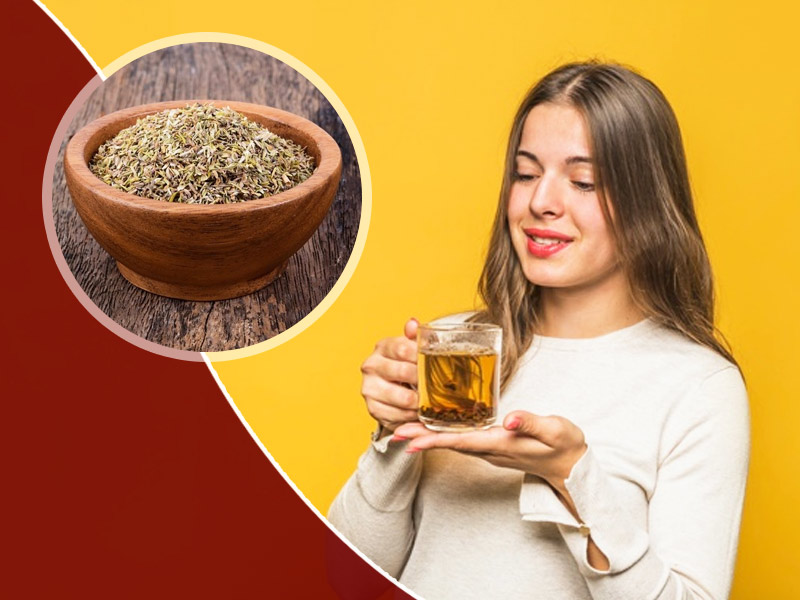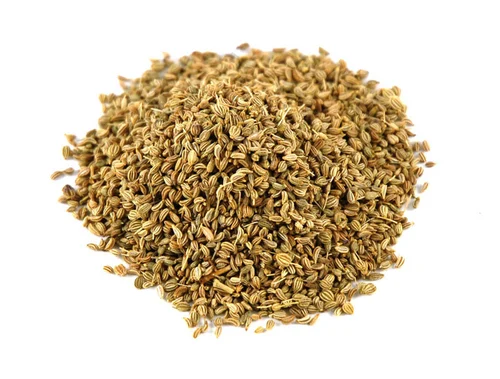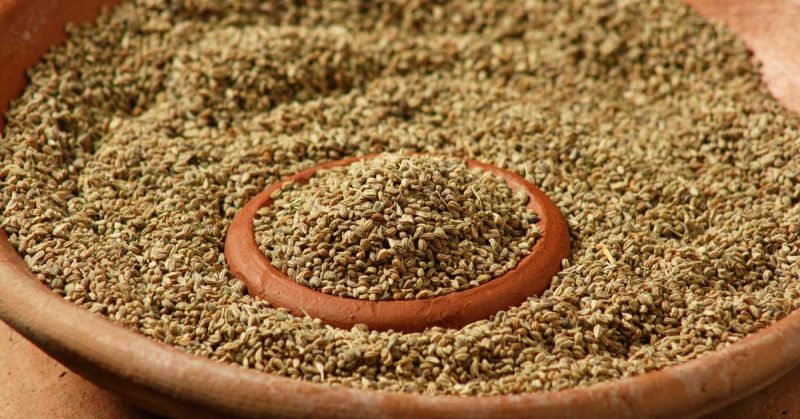Introduction
Thyme seeds are small, oval, and brownish-black in color. They are the reproductive part of the thyme plant, Thymus vulgaris, which belongs to the mint family. These tiny seeds are the starting point for growing one of the most versatile and aromatic herbs used in culinary and medicinal applications.
For its spicy, earthy, and slightly minty flavor, thyme has been a staple in kitchens and apothecaries for centuries. This extensive piece will explore the numerous aspects of thyme seeds, including their Nepali and Hindi names and potential benefits.
Thyme seeds are valuable because they can grow into the fragrant thyme plant and carry the genetic material and potential for many thyme varieties. From the familiar garden thyme to lemon thyme and creeping thyme, these seeds can produce a variety of plants, each with distinct tastes and uses.
Thyme Seeds in Nepali
In Nepali, thyme seeds are referred to as ajwainka biu. While thyme is not native to Nepal, it has recently become more well-known because of its adaptability in cooking and potential health benefits. Nepalese cuisine, known for its rich use of spices and herbs, has begun to incorporate thyme into various dishes, blending traditional flavors with the aromatic qualities of this Mediterranean herb.
Nepalese farmers have started experimenting with growing thyme in the country’s diverse climatic conditions. From the Terai plains to the hilly regions, thyme is cultivated to meet the growing demand. Thyme seeds’ adaptability to different environments makes them a promising addition to Nepal’s agricultural landscape.
Thyme Seeds Benefits
Thyme seeds, once grown into whole plants, offer numerous benefits. The herb contains vitamins and minerals, including C, A, copper, fiber, iron, and manganese. Here are some of the health benefits of thyme:
- Antimicrobial Properties: Thyme contains thymol, an essential oil with strong antimicrobial properties. This makes it effective against bacteria and fungi, helping to preserve food and treat infections.
- Respiratory Health: Thyme is often used in natural remedies for respiratory conditions. Because of its expectorant and antispasmodic qualities, it helps alleviate symptoms of bronchitis, coughs, and colds.
- Digestive Aid: Thyme aids digestion by stimulating the production of digestive enzymes. It can help relieve bloating, gas, and indigestion.
- Anti-inflammatory: The herb has anti-inflammatory effects, which may lessen the signs and symptoms of inflammatory diseases like arthritis.
- Antioxidant: Thyme is rich in antioxidants, which help defend the body from harm from free radicals and oxidative stress.

Culinary Uses
Thyme seeds are planted to produce thyme leaves, a staple in many cuisines. Thyme pairs well with meats, soups, stews, and vegetables. Its robust flavor is particularly complementary to Mediterranean dishes, such as grilled lamb, roasted vegetables, and tomato-based sauces.
Read More: Unveiling the Delicious World of Current Noodles: A Comprehensive Guide
Aromatic and Ornamental Uses
Thyme plants, especially the creeping varieties, are also used as garden ground cover. Their pleasant aroma and attractive foliage make them popular for ornamental planting. Thyme can also be used in potpourri and natural air fresheners.
How to Grow Thyme Seeds
Growing thyme from seeds is a rewarding process that can be done indoors and outdoors. Here is a step-by-step guide on how to grow thyme seeds:
Step 1: Seed Selection
Choose high-quality thyme seeds from a reputable supplier. There are various types of thyme, so select the variety that best suits your needs, whether it’s common, lemon, or creeping.
Step 2: Soil Preparation
Thyme likes soil that drains well and has a pH of 6.0 to 8.0. To enhance the soil’s fertility and drainage, prepare it by mixing organic matter such as compost.
Step 3: Sowing Seeds
Sow the thyme seeds on the soil’s surface and lightly press them down. Thyme seeds are tiny and need light to germinate, so avoid burying them too deep. Don’t overwet the soil; instead, keep it continuously damp.
Step 4: Germination
Thyme seeds typically germinate within 14 to 28 days. For optimal germination, maintain a temperature of around 15-21°C (60-70°F) and keep the soil wet.
Step 5: Transplanting
Once the seedlings have sprouted a couple of genuine leaves, they can be moved to their new place. Plant spacing should be between 12 and 18 inches to ensure sufficient ventilation.
Step 6: Care and Maintenance
- Watering: Thyme is drought-tolerant once established, so water sparingly. Overwatering can lead to root rot.
- Pruning: Regularly prune the plants to encourage bushier growth and prevent them from becoming woody.
- Harvesting: Harvest thyme leaves as needed, but don’t chop off more than one-third of the plant to ensure continued growth.
Indoor Growing
Additionally, thyme can be potted indoors. The pot should be placed in a sunny area with adequate drainage, such as a windowsill with six hours or more sunlight daily.
Thyme Seeds in Hindi
In Hindi, thyme seeds are known as ajwain ke beej. Thyme is less common in Indian cuisine than other herbs and spices but is slowly entering kitchens. Its distinct flavor adds something new to traditional dishes, complementing the complex spice profiles typical of Indian cooking.

Thyme’s antimicrobial and medicinal properties are also recognized in Ayurveda, where it is used to support respiratory health and digestion. As awareness of its benefits grows, thyme becomes more popular among health-conscious consumers in India.
You can Also Read: Sesame Seeds Benefits
Thyme Seeds for Cooking
Thyme seeds grow into plants whose leaves and flowers are used only in cooking. Here are some of the culinary applications of thyme:
Flavoring Meats
Thyme is a classic herb for seasoning meats. It goes exceptionally well with beef, lamb, and chicken. The herb can be utilized fresh or dried and is often included in marinades, rubs, and stuffing.
Enhancing Soups and Stews
It is a critical ingredient in any soups and stews. Its robust flavor withstands long cooking times, making it ideal for dishes that simmer for extended periods, such as beef stew, chicken soup, and vegetable broth.
Complementing Vegetables
Thyme enhances roasted or sautéed vegetables. It adds a depth of flavor to potatoes, carrots, zu china, and tomatoes. Thyme can be sprinkled over vegetables before roasting or mixed into sautéed greens.
Tea and Beverages
Thyme tea is a soothing beverage known for its health benefits, mainly for respiratory health. Step fresh or dried thyme leaves in hot water for a few minutes to make it. Thyme can also flavor cocktails, such as thyme-infused gin or vodka.
Conclusion
Thyme seeds are a gateway to cultivating one of the most versatile and beneficial herbs. From enhancing culinary creations to providing health benefits, thyme is significant in kitchens and gardens worldwide.
Whether you’re growing thyme in Nepal’s varied climates, incorporating it into traditional Indian dishes, or simply enjoying its aromatic presence in your home, thyme seeds offer a wide range of possibilities. Embrace the journey from seed to table and discover this timeless herb’s rich flavors and uses.
You Might Wanna Known About: Jimbu: The Himalayan Herb with Unique Culinary Use and Health Benefits

